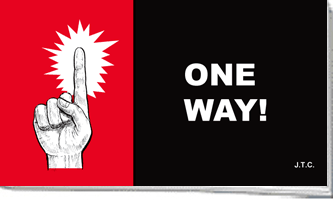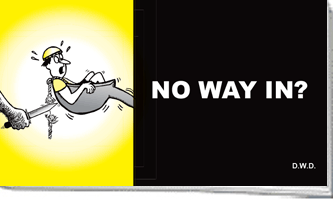The Poison of Ecumenism

In July, the Anglican Church in Wales appointed Cherry Vann as its 15th Archbishop —the first woman and the first openly gay leader in its history. Vann, who lives in a same-sex partnership, dismissed the controversy. “I’ve never heard God say to me, ‘Who you are is wrong, who you love is wrong,’” she told Premier Christian News. She added that the Bible is “open to interpretation” and that Christians “are not all of one mind on most things.”
The Global Fellowship of Confessing Anglicans (GAFCON), representing millions worldwide, condemned the move. Nigerian Archbishop Henry Ndukuba was blunt: “Sections of the Anglican world have resolved to abandon the truth of God’s word by sacrificing the authority of Scripture for a postmodern agenda.”
Vann, however, says she hopes to preside over “a church where we can learn to disagree” and hinted at formal recognition of same-sex marriages in the Church in Wales in the future.
The Presbyterian Church (U.S.A.) recently shuttered its foreign mission agency —not only because of finances but because the denomination itself had lost its sense of mission. The Evangelical Lutheran Church in America (ELCA), is watching its seminaries collapse and pews empty. Both denominations are rich in property but bankrupt in people and purpose.
Historian Carl Trueman says decades of chasing cultural approval left these churches hollow. “In seeking relevance,” he writes, “they declared their irrelevance to all.” Ecumenical “openness” blurred doctrine until nothing was worth fighting for —and nothing was left to believe. Leaders downplayed doctrinal distinctions until there was little left to distinguish their churches from the world around them. The result: collapse in numbers and in credibility.
Now, the Vatican and its shiny new pope are following suit. For the first time, the Vatican officially recognized LGBT+ pilgrimages during the 2025 Jubilee. Groups waving rainbow banners jubilantly marched through the Holy Door of St. Peter’s Basilica —a symbol of repentance— celebrating what Scripture calls sin.
Pope Leo XIV even decided to meet with “We Are Church,” a radical Catholic reform group that campaigns for female ordination and the full inclusion of homosexual relationships.
Historian Roberto Mattei warned that the Jubilee was being exploited to signal a doctrinal shift. “Official [LGBTQ+] participation…has a clear intent,” said Mattei, “to make it appear that the Catholic church has changed its judgment on homosexuality.”
From Anglican Wales to Protestant America to Catholic Rome, the trend is unmistakable. Ecumenism, once billed as a way to strengthen churches through unity, has become a tool for softening doctrine until nothing distinct remains.
It doesn’t resolve differences—it erases them. The result is not a united church, but a watered-down faith that mirrors the culture and offers nothing the world doesn’t already have.
What these cases reveal is a pattern: when churches seek peace by trimming truth, they end up with neither. And history shows that when churches trade gospel truth for cultural approval, decline follows. As Trueman put it, “Why should anyone go to church to hear what can be heard elsewhere?”
The world doesn’t need a church that blends in. It needs a church that proclaims the Bible without apology. And that mission isn’t just for pastors —it’s for every believer. All we need is a willingness to hand out a Chick tract. Even the smallest effort to point someone toward Christ carries eternal weight. Tracts like This Was Your Life, Somebody Loves Me, and One Way are powerful tools that share the clear message of the undiluted gospel.
- See more articles on related topics:
- Ecumenism
- Other Subjects
Products of interest:
-

This Was Your Life
Everything you have said or done will be played back at judgment. Will your name be in the Book of Life? -

Somebody Loves Me
Beaten and alone, a child dies. But Jesus cares. -

One Way!
Using just pictures and very few words, this tract shows that Jesus is the only way to obtain eternal life. Great for children! -

Flight 144
A couple spends 50 years on the mission field, trusting in their good works. But when they die and stand before God, they learn that good works can't save... only Jesus can. -

No Way In?
Everyone has their own idea about how to get in. But Jesus is the door. -

Stories from the Bible
176 pages
These beautiful illustrations help tell the true stories of some of the biggest Bible figures. You'll get a fresh mental picture of what it was like for these heroes of the Bible.
